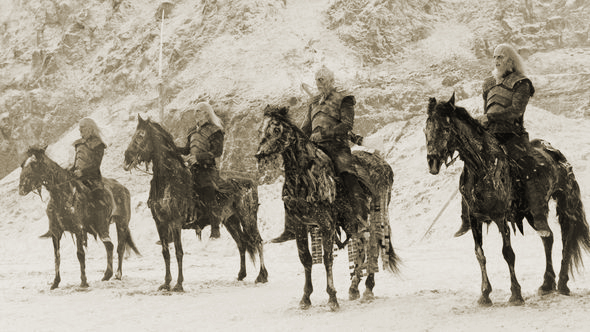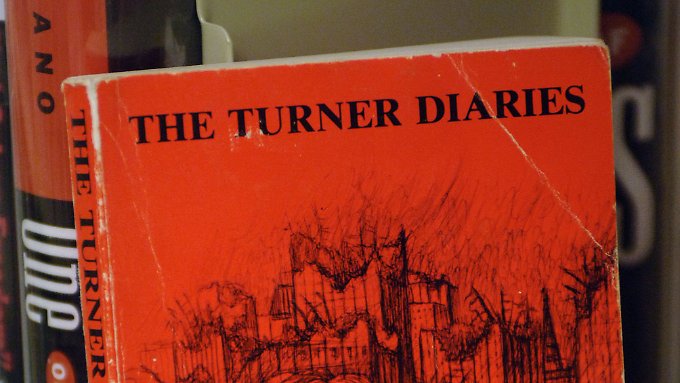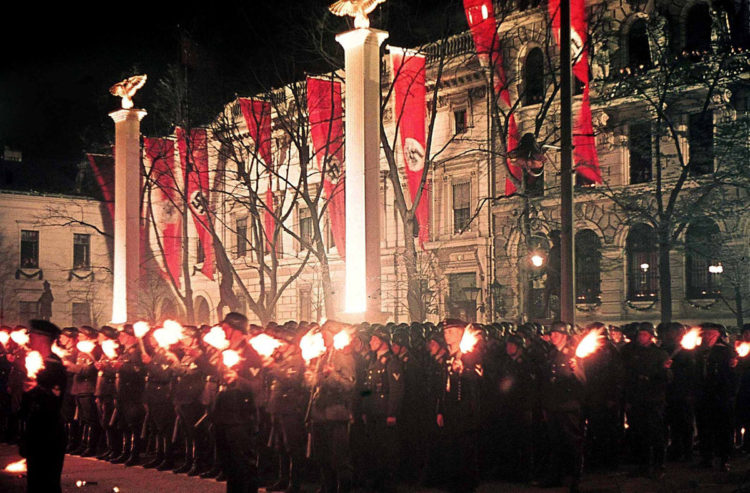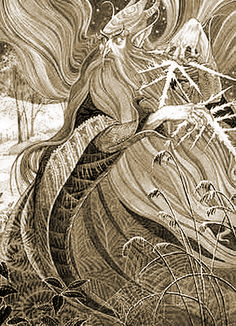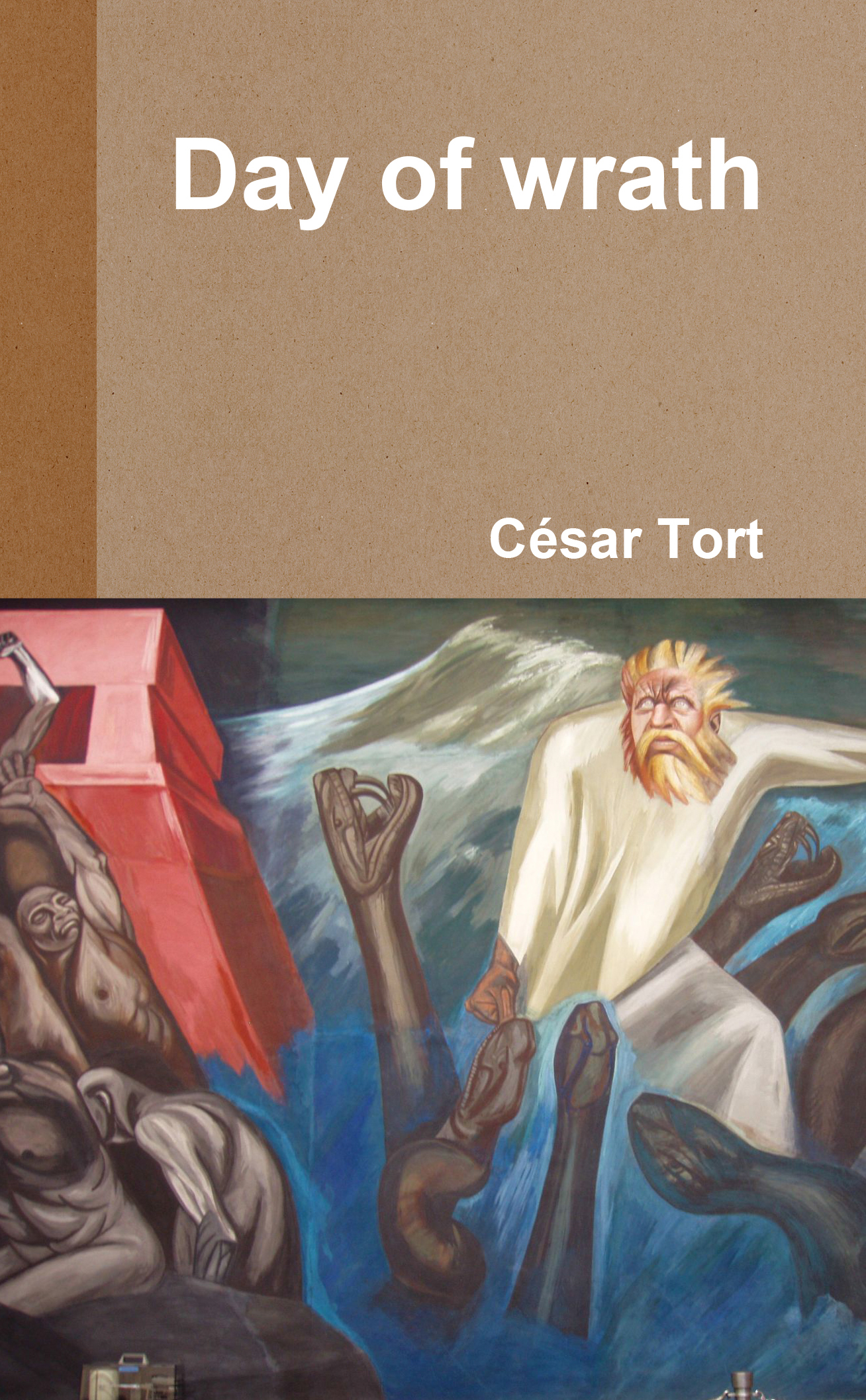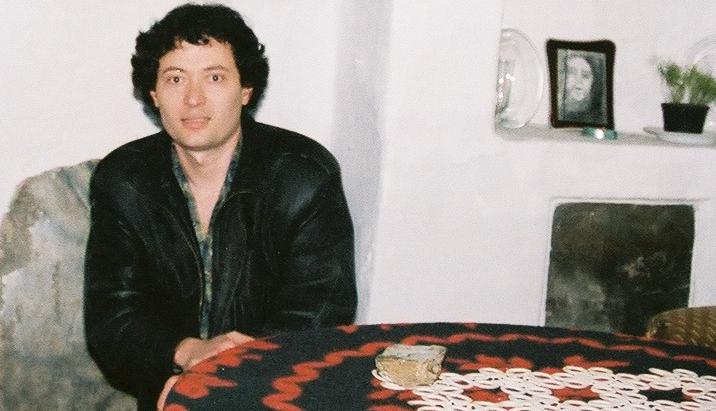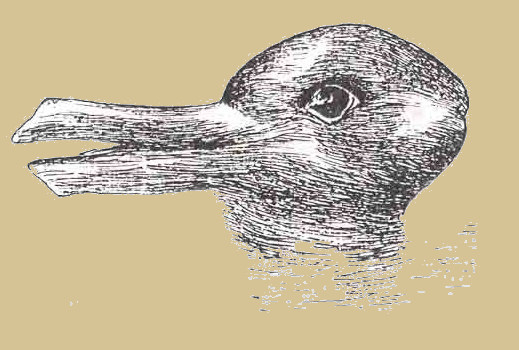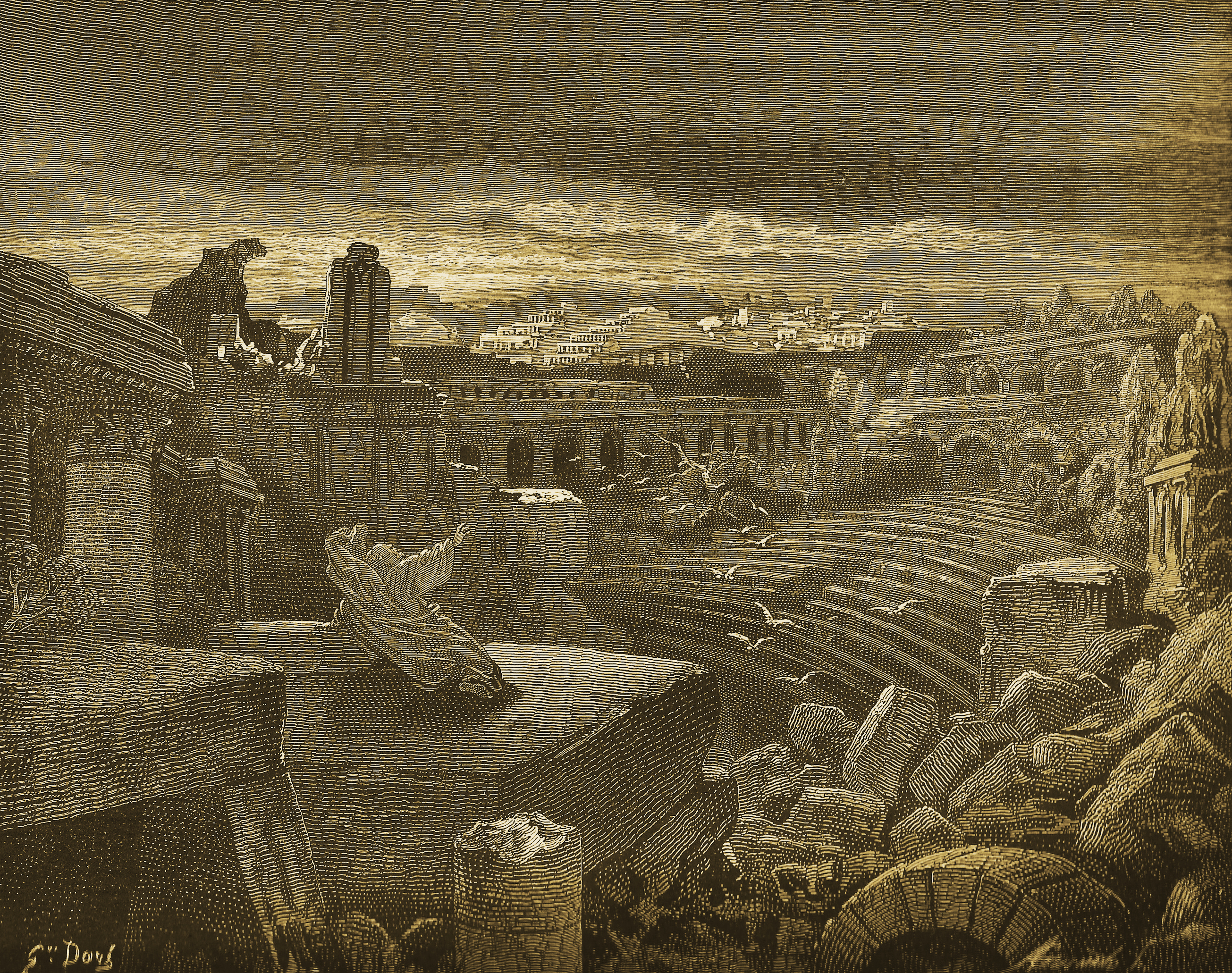by Kevin Alfred Strom

Today we continue our exploration of an awakening—an awakening that began with Charles Darwin, exploded into life in the ideas of Shaw and Nietzsche, and found its highest expression in the entirely new kind of human society pioneered by Adolf Hitler in National Socialist Germany. It is an awakening that has just begun.
When we left off last week, we were discussing the nature of Judaism and its offshoots, especially Christianity, and their gods—their crude anthropocentrism, their refusal to acknowledge the evolutionary nature of Life and the Universe, their irrationality, and their utter unsuitability as moral guides to help us do what must be done in order to survive—their total inability to lead us ever upward toward the stars.
Today we will learn that even those who believe they have cast off the superstitions of the Abrahamic faiths—“secular humanists,” atheists, Marxists, most libertarians, liberal elitists—are in truth still in bondage to the poisonous ideas that sprang from Judaism. Instead of leading us upward, toward our evolutionary destiny, they wallow in the mire of a nonexistent “human equality” and waste our time, our energy, and our very lives in pursuit of ignoble goals such as making sure that every arguably human wastrel has a full belly and a large-screen television.
Life, my friends—your life—can be much, much different than the shallow mockery of life offered by these blind men and liars.
Our text for this week is by the National Socialist writer and mystic, Savitri Devi, taken from her book Impeachment of Man.
______ 卐 ______
Man-Centered Creeds versus Racial-
Hierarchical Reality (continued)
by Savitri Devi
But when later Jews proclaimed him to be the God of all mankind; when he crept into Christianity as the Heavenly Father of Christ and the First Person of the Holy Trinity; and into Islam as the One God revealed to man through his last and definitive mouthpiece, the Prophet Mohammed; and finally, when he colored the ideology of the humanitarian theists—and even atheists—as the unavoidable remnant of a tradition hard to die, then the conception of him became more and more irrational. There was less and less any reason for his solicitude to stop at mankind. Yet it did stop there. There was, more and more, every reason for him to evolve into a truly universal God of all life. Yet he did not evolve that way. He could not drop the long-cherished propensity of picking out a fraction of his creation and blessing it with a special blessing, to the exclusion of the rest. That fraction of the great Universe had once been the Jewish people. It was now the human race—a trifling improvement, if one ponders over it from an astronomical (that is to say, from what we can imagine to be the only truly divine) angle of vision.
The great creeds of the world west of India remained man-centered, it would seem, because they never could free themselves entirely from the marks of their particular tribal origin among the sons of Abraham. The Jews never were a race that one could accuse of giving animals too great a place in its everyday life and thoughts. Christ, who came “to fulfil” the Jewish law and prophecies (not to introduce into the world a different, more rational, and truly kindlier trend of thought) appears never to have bothered his head about the dumb creatures. We speak, of course, of Christ as the Christian Gospels present him to us. That Christ—we have no means whatsoever of finding out whether a “truer” one ever lived—never performed a miracle, never even intervened in a natural manner, in favor of any beast, as his contemporary, Apollonius of Tyana, not to speak of any more ancient and illustrious Master such as the blessed Buddha, is supposed to have done. He never spoke of God’s love for animals save to assert that He loved human beings a fortiori, much more. He never mentioned nor implied man’s duties towards them, though he did not omit to mention, and to stress, other duties.
If the Gospels are to be taken as they are written, then his dealings with nonhuman sentient creatures consisted, on one occasion, of sending some evil spirits into a herd of swine, that they might no longer torment a man, and, another time, of making his disciples, who were mostly fishermen by profession, as every one knows, catch an incredible quantity of fish in their nets. In both cases his intention was obviously to benefit human beings at the expense of the creatures, swine, or fish. As for plants, it is true that he admired the lilies of the fields; but it is no less true that he cursed a fig tree for not producing figs out of season and caused it to wither, so that his disciples might understand the power of faith and prayer. Fervent English or German Christians, who love animals and trees, may retort that nobody knows exactly all that Jesus actually said, and that the gospels contain the story of only a few of his numberless miracles. That may be. But as there are no records of his life save the Gospels, we have to be content with what is revealed therein. Moreover, Christianity as an historical growth is centered around the person of Christ as the Gospels describe him. And, as Norman Douglas has timely remarked, it remains a fact that the little progress accomplished in recent years in the countries of northwestern Europe and in America, as regards kindness to dumb beasts, was realized in spite of Christianity, and not because of it.
To say, as some do, that every word of the Christian Gospels has an esoteric meaning, and that “swine” and “fishes” and the “barren fig tree” are intended there to designate anything but real live creatures, would hardly make things better. It would still be true that kindness to animals is not spoken of in the teaching of Jesus as it has come down to us, while other virtues, in particular kindness to people, are highly recommended. And the development of historical Christianity would remain, in all its details, what we know it to be…
That people whose outlook is conditioned by biblical tradition should put a great stress upon the special place of man in the scheme of life; that they should insist on man’s sufferings, and on the necessity of man’s happiness, without apparently giving as much as a thought to the other living creatures, one can understand. They follow the Book to which they may or may not add some secondary scriptures based upon it. They cannot be expected to go beyond what is prescribed in it or in those later scriptures.
But there are, in the West, ever since the Middle Ages, increasing numbers of people who dare to do without the Book altogether; who openly reject all divine revelation as unprovable, and who see in their conscience the only source of their moral judgements and their only guide in moral matters. It is remarkable that these people, free from the fetters of any established faith, still retain the outlook of their fathers as regards man’s relation to animals and to living nature in general. Free Thought, while rightly brushing aside all man-centered metaphysics; while replacing the man-centered conceptions of the Universe by a magnificent vision of order and beauty on a cosmic scale—a scientific vision, more inspiring than anything that religious imagination had ever invented, and in which man is but a negligible detail—Free Thought, we say, omitted entirely to do away with the equally outdated man-centered scale of values, inherited from those religions that sprang from Judaism. Sons of Greek rationalism, as regards their intellectual outlook, the Westerners who boast of no longer being Christians—and the few advanced young men of Turkey and Persia, and of the rest of the Near and Middle East, who boast of no longer being orthodox Muslims—remain, as regards their scale of moral values, the sons of a deep-rooted religious tradition which goes back as far as some of the oldest fragments of the Jewish Scriptures: the tradition according to which man, created in God’s own image, is the only living being born for eternity, and has a value altogether out of proportion with that of any other animal species.
There has been, it is true, in the West, in recent years—nay, there is, for nothing which is in harmony with the Laws of Life can ever be completely suppressed—a non-Christian (one should even say an anti-Christian) and definitely more than political school of thought which courageously denounced this age-old yet erroneous tradition, and set up a different scale of values and different standards of behaviour. [Here Savitri Devi is referring to National Socialism.—Editor] It accepted the principle of the rights of animals, and set a beautiful dog above a degenerate man. It replaced the false ideal of “human brotherhood,” by the true one of a naturally hierarchised mankind harmoniously integrated into the naturally hierarchised Realm of life, and, as a logical corollary of this, it boldly preached the return to the mystic of genuine nationalism rooted in healthy race-consciousness, and the resurrection of the old national gods of fertility and of battle (or the exaltation of their philosophical equivalents) which many a Greek “thinker” and some of the Jewish prophets themselves had already discarded—politely speaking: “transcended”—in decadent Antiquity. And its racialist values, solidly founded upon the rock of divine reality, and intelligently defended as they were, in comparison with the traditional man-centered ones inherited, in Europe, from Christianity, are, and cannot but remain, whatever may be the material fate of their great Exponent [Adolf Hitler—Ed.] and of the regime he created, the only unassailable values of the contemporary and future world. But it is, for the time being, a “crime” to mention them, let alone to uphold them—and their whole recent setting—in broad daylight.
The opposite ideologies, more in keeping with the general tendencies of modern Free Thought from the Renaissance onwards, have only broken off apparently with the man-centered faiths. In fact, our international Socialists and our Communists, while pushing God and the supernatural out of their field of vision, are more Christian-like than the Christian Churches ever were. He who said, “Love they neighbor as thyself” has to-day no sincerer and more thorough disciples than those zealots whose foremost concern is to give every human being a comfortable life and all possibilities of development, through the intensive and systematic exploitation by all of the resources of the material world, animate and inanimate, for man’s betterment. Communism, that new religion—for it is a sort of religion—exalting the common man; that philosophy of the rights of humanity as the privileged species, is the natural logical outcome of real Christianity. It is the Christian doctrine of the labor of love for one’s neighbors, freed from the overburdening weight of Christian theology…
And that is not all. Even Christian theology will perhaps not always remain as totally worthless to them as our Communist friends often think. It may be, one day, that they will bring themselves to use it. And, if ever they do, who will blame them but those nominal Christians who have forgotten the out and out “proletarian” character of their Master and of his first disciples? The myth of the God of mankind taking flesh in the son of the carpenter of Nazareth may well be interpreted as a symbol foreshadowing the deification of the working majority of men—of the “masses”; of man in general—in our times…
The generous “morality” derived from modem Free Thought is no better than that based upon the time-honored man-centered creeds that have their origin in Jewish tradition. It is a morality centered—like the old Chinese morality, wherever true Buddhism and Taoism have not modified it—around “the dignity of all men” and human society as the supreme fact, the one reality that the individual has to respect and to live for; a morality which ignores everything of man’s affiliation with the rest of living Nature, and looks upon sentient creatures as having no value except inasmuch as they are exploitable by man for the “higher” purpose of his health, comfort, clothing, amusement, etc. The moral creed of the Free Thinker today is a man-centered creed…
We believe that there is a different way of looking at things—a different way, in comparison with which this man-centered outlook appears as childish, mean, and barbaric as the philosophy of any man-eating tribe might seem, when compared with that of the Christian saints, or even of the sincerest ideologists of modern international Socialism or Communism.
NOTE
The title of these excerpts is editorial; the text was originally prepared and edited by Irmin Vinson of the Racial Nationalist Library.
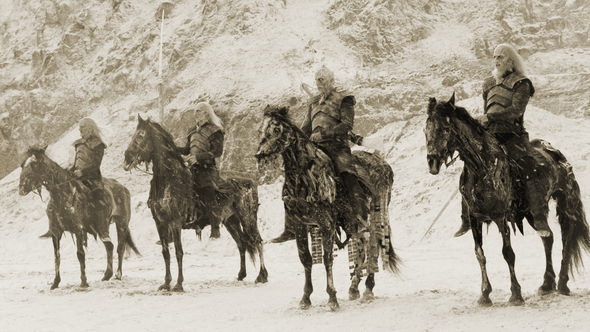 Today I woke up with a dream in which I mentioned to Jared Taylor and Greg Johnson my idea of dispatching the vast majority of mankind for ethical and aesthetic purposes. We were walking on a street in another country and in the end I got to fly, but when I was awake I realised that I didn’t see either of them in the dream: I was talking to them but they were not actually physically there.
Today I woke up with a dream in which I mentioned to Jared Taylor and Greg Johnson my idea of dispatching the vast majority of mankind for ethical and aesthetic purposes. We were walking on a street in another country and in the end I got to fly, but when I was awake I realised that I didn’t see either of them in the dream: I was talking to them but they were not actually physically there.